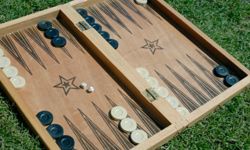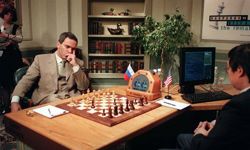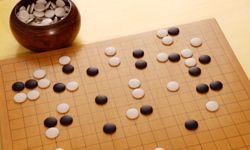The story of man versus machine has been popular since the industrial revolution. We humans tend to pride ourselves on our cleverness as a species. No small part of our ingenuity has been dedicated toward designing devices that can help us accomplish tasks more efficiently. In the process, we've raised more questions about whether machines are superior to man.
There's no question that computers are capable of making billions of complex calculations in a fraction of the time it would take most of us to solve just one. Computers can store and access more information on a hard drive than you'd find in an entire library. From a numbers-crunching perspective, computers come out on top.
Advertisement
The challenge for computer programmers is to solve games as if they were math problems. That involves determining the perfect way to play the game so that there are no errors on the part of the computer. With some games, you'll always win if you're the first player to make a move and you follow perfect play. With other games, you may not win but you'll never do worse than a draw.
The amount of time and effort it takes to solve a game depends upon the complexity of the game itself. Computer scientists have solved some games but others remain elusive. We'll look at five matchups between humans and computers, listed in no particular order, that illustrate how far computer science has advanced over the last few decades.




